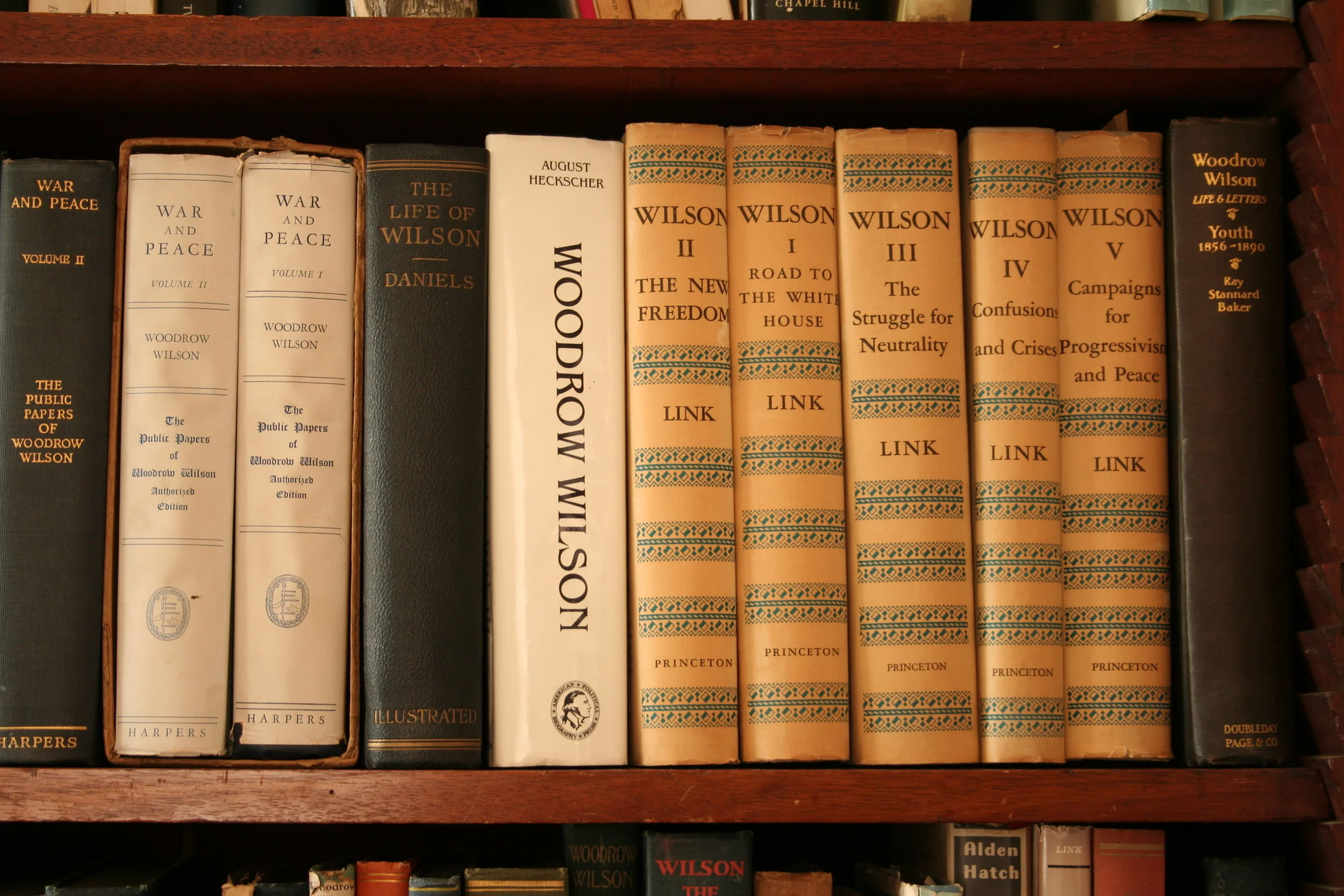More on Tommy Wilson’s Diary
/We read a bit of Wilson’s diary in the last blog post when discussing his trip to the Philadelphia Centennial Exhibition. We mostly have his sparse notes on life at Princeton and then at home for summer vacations over the next two years. Wilson repeatedly lags in his writing and then berates himself for his failings as a diarist when he starts up again, often months later. As the editors of the Woodrow Wilson Papers describe his journal: “It covers the period June 3 to November 23, 1876 and consists of fifty-five pages of closely written shorthand.”
A second smaller diary contained fourteen entries for the period from 1877 and 1878. In some cases, he clearly wrote out shorthand notes during the day and then copied them into his journal later, again in shorthand. A few surviving examples of the initial notes have been found, but really these two notebooks are all that we have for President Wilson’s longest period of keeping a diary. His main effort seems to have been to give himself additional practice at the shorthand he used for keeping notes in classes and meetings. However, he also makes it clear that he desperately wanted to become a great man of world affairs, the type of person who records his triumphs and can look back on the lessons of his struggles, which helps to explain his disappointment at not keeping up with his diary. Before one long break, he wrote in November 23, 1876, “Discontinued for want of time to do it Justice.”
The diaries show Wilson to be a very earnest, a very politically-minded young man. He records the excitements of baseball among the elite schools of the age and gives us some mysterious mentions of the vicious battles among the freshmen and sophomores at Princeton known as cane sprees. Much of his time, though, as you might expect, is spent attending or skipping lectures, working on essays, and loafing with other students. The most notable thing found in these Princeton diaries is Wilson’s firm defense of the South even as an undergraduate.
Cane Spree of 1877 Depicted in Scribner’s, Princetoniana
He gives us his clearest example of this during the same trip back to campus with his father that we discussed earlier. Joseph Ruggles Wilson Sr. had himself studied theology at Princeton and eagerly sought out some the professors he know at the Seminary on the day after they arrived. He then departed on the next day, after his son came to pick him up at the hotel and witnessed an exchange with Professor Cameron, Professor of Greek Language and Literature.
Father had quite a discussion with the jackass on the southern question. He is one of the kind of men that have rent the country and are the curse of the South. He is one of those who says that he was born in the South and knows all about it when they know less than a two year old baby. Such men are a scandal to leaders.
After hearing the speeches of “Chapel Stage” on Sunday, November 4th, 1876, Woodrow Wilson wrote:
Tommy McKoy made a fine speech on Robert E. Lee in which I followed him very closely of course because Lee is one of my favorites. He was a noble man and most able general.
In several cases, during the controversial election year of 1876, Woodrow Wilson shows in his diaries that his support for the South translated into a dedication to the Democratic Party. So, we will end the discussion with just a few choice quotes to prove the point that Wilson was a loyal Democrat from his earliest days:
October 10th. There are numerous bets on the issue of the Indiana elections—may those supporting the Democrats win!
October 12th. This evening’s reports of the elections in Indiana, Ohio and West Virginia give the Democrats Indiana and West Virginia and make Ohio doubtful though probably Republican. This is good news and makes me feel much better.
November 6th. After Chapel we had our college voting. I have not yet learned the result but it is pretty certain that the Republicans have the majority in this election. This evening there was a large fire around the cannon and speeches from Republican and Democratic orators. I stayed and listened to some of the speeches but as the speakers were all very stupid I soon tired and left.
November 10th. Oh for some decision one way or another in the election! This suspense is almost insupportable when I feel all the time that so much is at stake—the salvation of the country depends upon the success of the Democratic cause.
November 13th. The evening papers give the election to Tilden and almost all the Republicans are beginning to acknowledge that the Democrats have won the day. In the case of an election such as we have just had one realizes how large a country America is by the slow way in which returns come in. Hurrah for Tilden!







